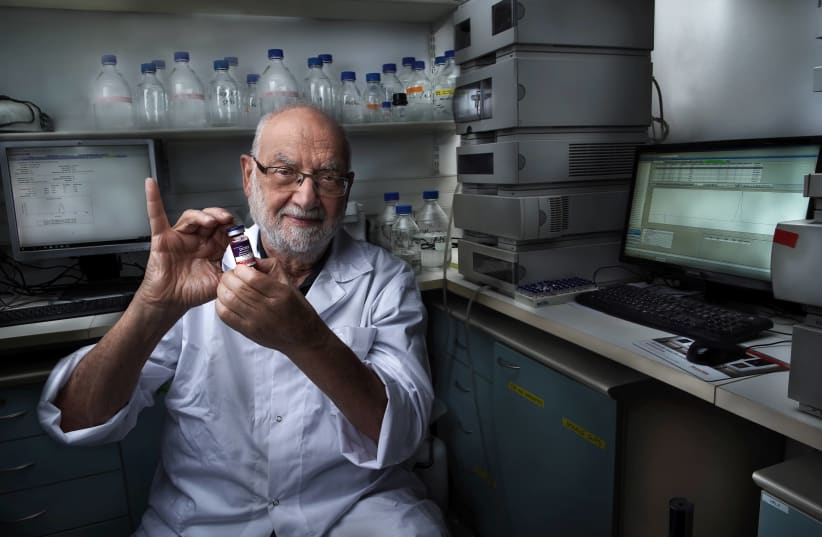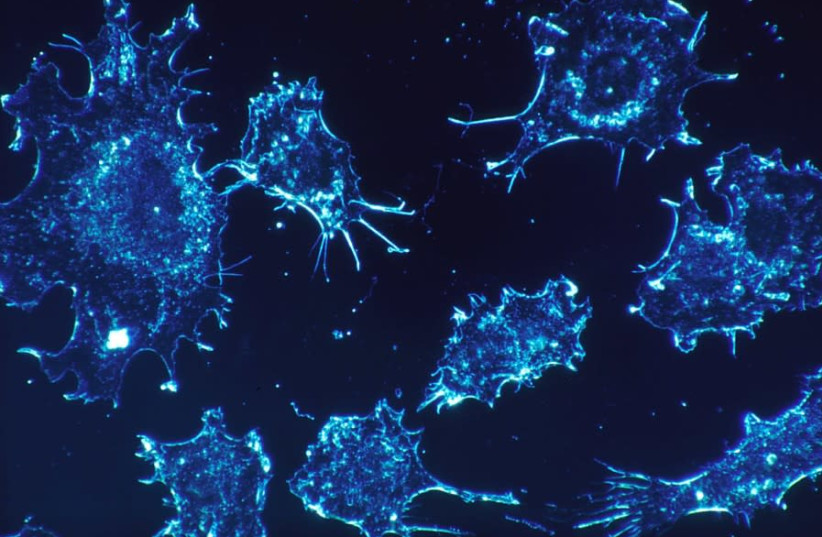The American Food and Drug Administration has approved a groundbreaking, complex, generic drug indicated for the treatment of ovarian cancer, multiple myeloma and Kaposi’s Sarcoma.
Ayana’s Doxorubicin-HCI Liposomal Injection will now be available in the US market. The drug is a modified chemotherapy treatment that targets cancer cells directly, thereby reducing side effects.
The drug, and the company that makes it, are located in Jerusalem. It was developed by Prof. Yechezkel Barenholz, a world expert in biochemistry, nanotechnology and drug development and the winner of the 2020 EMET Prize for exact sciences.
Barenholz is also the inventor of Doxil, the world’s first nanotechnology drug approved by the FDA in 1995. Doxorubicin-HCI is the generic version of Doxil, which had first been produced by Johnson & Johnson.
He has written over 420 scientific publications and owns more than 55 patents.
The treatment leverages the drug doxorubicin – a cytotoxin or chemotherapy drug – encapsulated in a closed lipid sphere called a liposome.
A liposome can be imagined as a small “ball” the size of a virus, explained Barenholz. The ball is made of an envelope made of special “fat” molecules with a watery solution inside. These balls are referred to as nano-liposomes.
“We load the toxic agent into these balls and infuse them into a patient’s bloodstream once a month,” he said. “These nano-Liposome balls travel through the bloodstream until they reach the cancer tissue and there, through tiny pores in the blood vessels, exit the bloodstream and accumulate in the cancer tissue.
“Unlike healthy cells, cancer cells produce ammonia, and this ammonia releases the active toxic agent [doxorubicin] out of the nano-liposomes balls in proximity to the cancer cells, leading to the cancer cells’ death,” Barenholz explained.
The targeted technology helps solve one of chemotherapy’s biggest challenges: side effects. The treatment reduces hair loss, gastrointestinal issues and other results of chemo, which attacks all cells equally – both healthy and cancer ones.
“When a patient does not suffer from so many side effects, the compliance rate is much better and it is much easier to treat the patient,” Ayana CEO Gal Cohen said.
Barenholz founded Ayana in 2012 at the request of several oncologists and cancer patients when J&J struggled to manufacture Doxil. A generic drug is also much less expensive, making it more accessible to those in need.
It took from the end of 2012 until now to obtain FDA approval after building the ability to produce Doxorubicin-HCI in Israel according to Good Manufacturing Practice and meeting all other FDA requirements for US marketing authorization.
Cohen, who joined Ayana in late 2020, led the team to obtaining the FDA approval and for commercial launch readiness.
Over the last decade, while the company was working on the treatment, other novel treatments for cancer have also been developed. This includes, for example, monoclonal antibodies. But Cohen said that many of these new treatments are cost inhibitive and don’t work for everyone. Chemotherapy is still the most consistently effective treatment for cancer.
The drug will be made available through a strategic partnership with Padagis, which was recently acquired for $1.55 billion by Altaris from Perrigo, a company that has been operating since 1887. Padagis provides hundreds of topical and other specialty pharmaceuticals to its primary markets of the United States and Israel, has annual sales of around $1 billion and employs over 1,300 people worldwide. The companies are ready for commercial launch of the drug.
Although Ayana is a small company of only 12 employees, Cohen said it has a pipeline of other products that it is working on, also centered on the use of nanotechnology.
“We believe that it is cutting edge technology and that many people could benefit from treatment through this delivery system,” Cohen said.
He would not indicate which diseases might be targeted next, but he said not all of the company’s drugs will be used for cancer.

